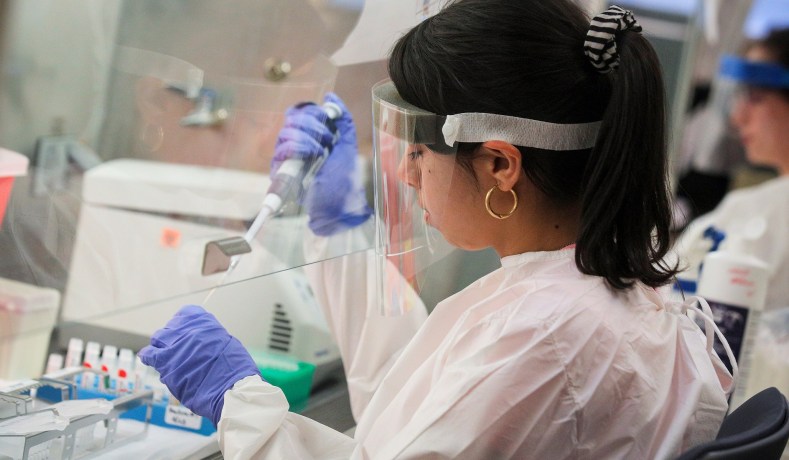Corona: Looking for A Cure
Science! That is what coronavirus comes down to. Understanding the science of the disease will allow medical care professionals, researchers and patients to come out of this pandemic as soon as possible. We all want to get out of this situation, and as a result there has been a plethora of remedies and treatments presented to treat COVID-19. There has been no antiviral treatment available at the moment so there are many other drugs that are being researched for use. But, if your just an average Joe like me it might be a little difficult to sort all of them out and understand them, so I thought it’d be helpful to break the options that have been presented down, with help from Health Harvard:
1.Convalescent plasma
Convalescent plasma has been used as an experimental treatment where antibodies from recovered COVID-19 patients are injected in severely ill current COVID-19 patients. The antibodies in this plasma are used to help these patients recover. There has been some reported success in China, but it is still experimental in the US.
2.Ibuprofen
French doctors have advised against the use of ibuprofen based on research showing that COVID patients who took the NSAIDS suffered from severe illnesses like pneumonia. Acetaminophen has been recommended in its place, but ibuprofen does not need to be completely avoided.
3.Hydroxychloroquine
The most famous of them all! Hydroxychloroquine is used to treat malaria and inflammatory diseases like lupus and rheumatoid arthritis. According to the Harvard Medical Journal: “Hydroxychloroquine and chloroquine have been shown to kill the COVID-19 virus in the laboratory dish. The drugs appear to work through two mechanisms. First, they make it harder for the virus to attach itself to the cell, inhibiting the virus from entering the cell and multiplying within it. Second, if the virus does manage to get inside the cell, the drugs kill it before it can multiply.”
But the drug can also result in lethal heart rhythms, especially when combined with azithromycin.
4.Azithromycin
This drug is never used for viral infections, but can serve as an anti inflammatory.It has been prescribed in people with strep throat and bacterial pneumonia. This being said there is talk about how azithromycin can suppress the severity of the immune response, but just like hydroxychloroquine there is a higher risk for those who take it to have lethal heart rhythm abnormalities.
5.Remdesivir
Remdesivir has been talked about because of its association with treating a disease caused by ebola, not allowing the virus to replicate itself. The drug seems to limit the reproduction and spread of viruses in the body and successfully targets the viruses that caused SARS and MERS and can work against COVID-19.
6.Vitamin C
Vitamin C as a remedy in China has sparked some buzz over whether or not it has the capacity to treat the virus. There has been no hard set scientific data to support whether or not that is the case but Vitamin C used to treat infection is not a new concept, but in high does people can experience nausea and cramps. As the Harvard Journal states: “. A 2017 study found that high-dose IV vitamin C treatment (along with thiamine and corticosteroids) appeared to prevent deaths among people with sepsis, a form of overwhelming infection causing dangerously low blood pressure and organ failure.But… there is no evidence that taking vitamin C will help prevent infection with the coronavirus that causes COVID-19. ”
7.Antibody Testing
The Serologic, or Antibody tests are set up to look for antibodies that are created by the immune system that can develop 5-10 days after contracting the infection. It has the potential to be used as a means for scientists to see which parts of the body the virus responds to, which would allow them to develop vaccines that target those areas.
9.Stay Home and Rest
This one seems pretty straightforward, as most people diagnosed with COVID just recover at home. Just like the treatment for the flu, people are advised to get rest, stay hydrated and take over the counter medicine for fevers, aches and pains.
I hope this helps with understanding what is going on in the world of science as this pandemic calls for more questions than answers when it comes to treating COVID-19.


